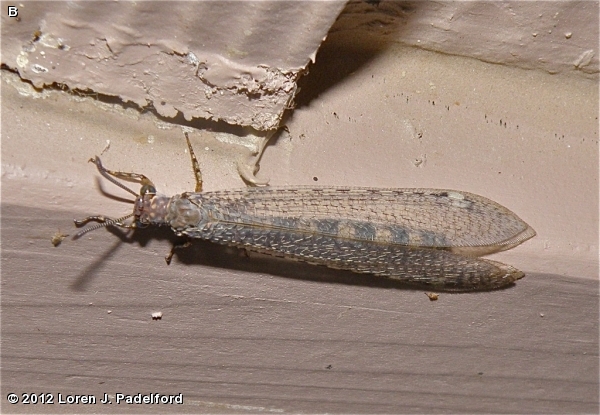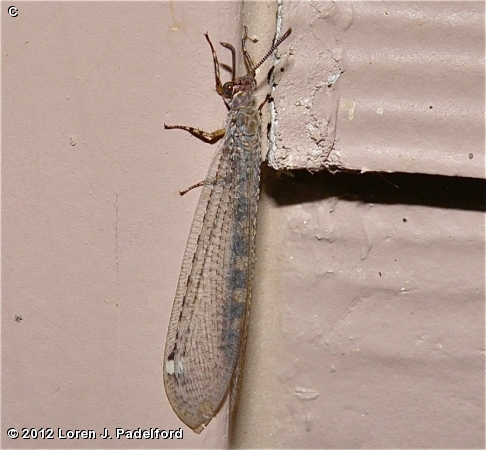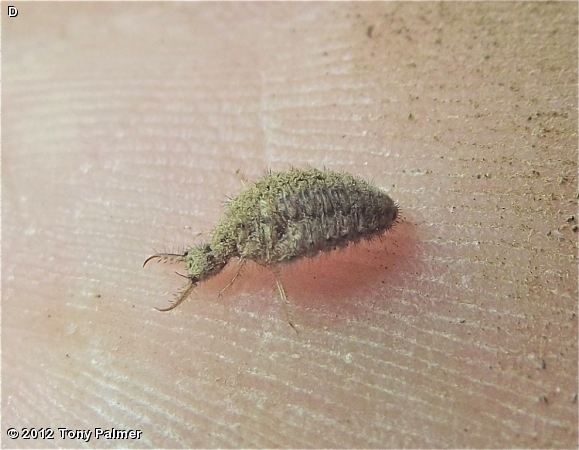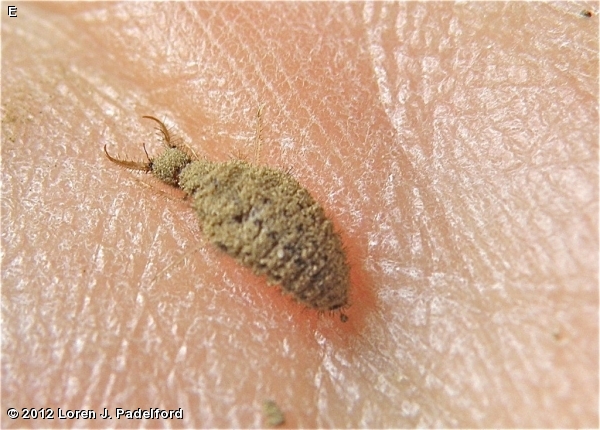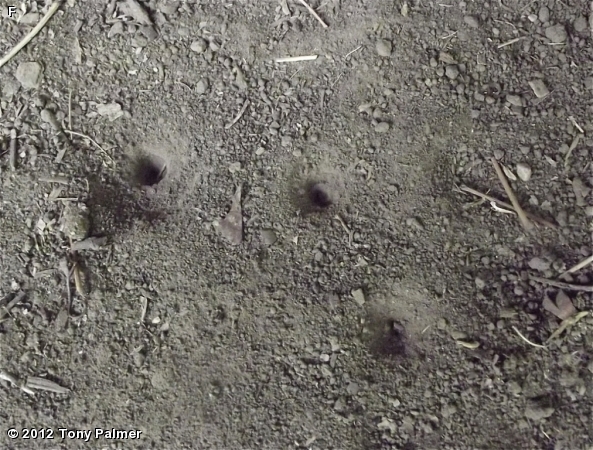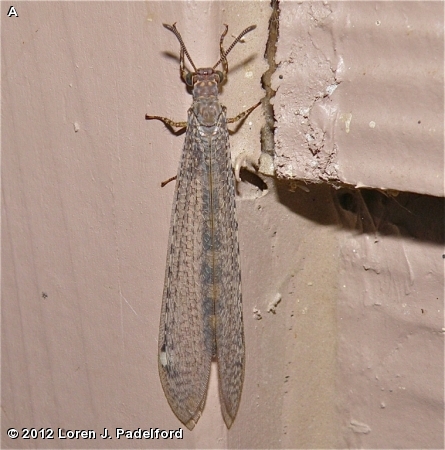
Myrmeleon immaculata
ANTLION FAMILY (Myrmeleontidae)
Description
Adult Antlions are about 1.50 inches in length. The head and thorax are brown. The abdomen is brown with black bands. The wings are large and hyaline with black veining. There is a black and white stigma on the leading edge. The adult resembles a dragonfly but has short, clubbed antennae and is a weak flier. The Antlion larva, also called a doodlebug, is about 3/8 inch long. It is brown and chubby, with bristly, brown hairs. It has large mandibles or pinchers with which to catch prey. The antlion larva shown here was identified by Tony Palmer during the bioblitz at Camp Brewster in late April 2012.
Occurrence
Antlions are common in this area. The larva shown here (photos D & E) was found in its sand trap at Camp Brewster, Fontenelle Forest. The funnel-shaped sand traps, which are about one inch across, are found in dry, sandy areas and places where the soil is loose. The adult shown here was found at Fontenelle Forest Nature Center in late October. The adults are rarely seen as they are nocturnal and are not usually attracted to lights. They are most often seen flying after being flushed from tall grass.
Comments
The doodlebug (larva) can only walk backwards. Only the larvae of the genus Myrmeleon dig the funnel shaped pits (photo F) from which they trap insects. The larva waits just under the surface of the soil for a small insect or ant to wander into the trap. When an insect gets into the pit, the antlion larva kicks up showers of dirt which help draw the insect into the jaws of the waiting antlion. The larva spends the winter in a sand burrow and resurfaces in spring to build its pits. It may spend from 1 to 3 years in the larval stage. The larva pupates in a sand covered silk cocoon at the bottom if its pit.
Disclaimer: The content of NatureSearch is provided by dedicated volunteer Naturalists of Fontenelle Forest who strive to provide the most accurate information available. Contributors of the images retain their copyrights. The point of contact for this page is: Babs Padelford.

